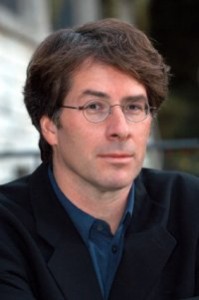Wesleyan Hosts Conference to Honor Theorist Hannah Arendt

Fifty years ago, political theorist Hannah Arendt (1906-1975) published Eichmann in Jerusalem: A Report on the Banality of Evil, a work she completed while she was a Fellow at Wesleyan’s Center for Advanced Studies (now the Center for the Humanities). On Sept. 26-28, Wesleyan will host a conference to honor this achievement and reflect on the reverberating repercussions of Arendt’s work, a trial report that asks important and abiding questions about personal responsibility under dictatorship, the moral judgment of evil, the juridical prosecution of genocidal crimes of an international nature, and, more broadly, the historical conditions that shape our understanding of the Holocaust.
The conference, titled “Exercising Judgment in Ethics, Politics, and the Law: Hannah Arendt’s Eichmann in Jerusalem: A Report on the Banality of Evil, Fifty Years Later,” is organized by Sonali Chakravarti, assistant professor of government; Ethan Kleinberg, director of the Center for the Humanities; and Uli Plass, associate professor of German studies and Center for the Humanities faculty fellow.
Arendt’s book comments on the trial of SS-Lieutenant Colonel Adolf Eichmann, who was responsible for organizing the deportation of European Jews to Nazi death campus during World War II. At his trial, Eichmann was found guilty of 15 criminal charges in an Israeli court and was executed in 1962. In a lecture at Wesleyan in January 1962, Arendt explained that Eichmann had been found guilty of “crimes against humanity,” a new category of crime to be distinguished from war crimes: “[Eichmann’s] crime was international in nature. It has been called, properly, crime against humanity. Only if such a crime exists can there be international law, criminal law, and an international court which deals with individuals.”
“Eichmann in Jerusalem continues to be one of the most famous and controversial works of political theory ever written,” Plass said. “The book immediately caused a controversy that has not fully subsided to this day; it also opened up a new chapter in the public awareness and understanding of genocide and played a crucial role in the emergence of the academic field of Holocaust studies.”
To acknowledge the intellectual range of Arendt’s book in particular and her political philosophy more broadly, this interdisciplinary conference will feature speakers from the U.S., Israel and Germany representing the fields of political theory, moral philosophy, intellectual history, law, Holocaust studies, feminist and gender studies, and literary theory.
In reviewing Arendt’s attempt to theorize problems of judgment and responsibility and to understand evil, the speakers—all of whom are renowned experts in Arendt’s political philosophy—will situate Eichmann in Jerusalem with regard to other aspects of Arendt’s moral and political thought and will reflect on the impact it has had on their own work. View a list of all participants online here.

The conference begins at 6 p.m. Sept. 26 with a welcome and introduction by Wesleyan President Michael Roth and Kari Weil, director of the College of Letters. At 6:15 p.m., Susan Neiman, director of the Einstein Forum in Potsdam will deliver the keynote address.
On Sept 27-28, lecturers will speak on “Debating Eichmann in Jerusalem;” “Of Monsters and Moral Judgement: Reflections on Arendt, Eichmann, and the Changing Historiography of the Holocaust;” “Jewish Particularisms and False Universalisms: Reading Eichmann in Jerusalem in the 21st Century;” “Understanding Evil,” “Judging Evil;” “The Enigma of Hannah Arendt;” “Representing Hannah Arendt’s Eichmann in Jerusalem on the Screen;” and other topics. All panel discussions are moderated.
The event also includes two screenings of Margarethe von Trotta’s new film, Hannah Arendt, a Q&A with the co-screenwriter Pam Katz, a discussion about representing Eichmann in Jerusalem on the screen, and a conversation with former students about Hannah Arendt’s teaching at Wesleyan and the legacy of her biographer, Elisabeth Young-Bruehl, who taught at Wesleyan for two decades. View the full conference schedule online here.
“Exercising Judgment” is made possible by the generous support of COL major David Rhodes ’68. The event is hosted by the Center for the Humanities and co-sponsored by the College of Letters; Jewish and Israel Studies; German Studies; the Government Department; Social, Cultural and Critical Theory; and the German Academic Exchange Service, DAAD.
The conference is part of the Center for the Humanities theme “Justice and Judgment,” which invites reconsiderations of how we can think of judgment as providing a mediation between seemingly unrelated spheres of knowledge and experience.
Locations will be announced on the website. To register fill out this web form.

